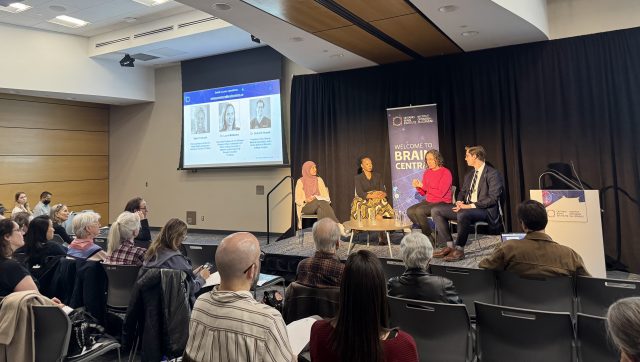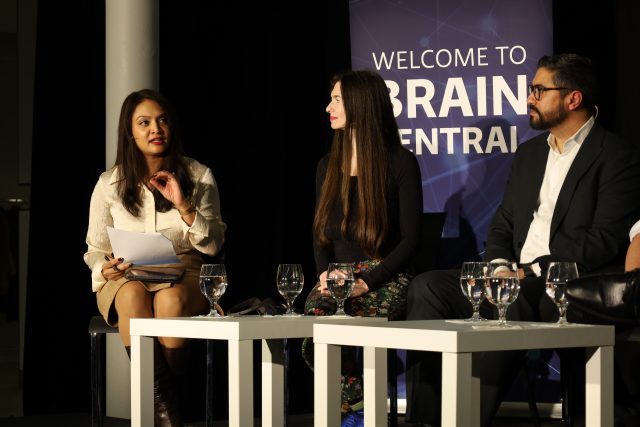Ontario Brain Institute (OBI) believes connecting its research programs with patients and their advocates is critical to having relevant and high impact programs.
OBI has worked with each of its Integrated Discovery Programs (ID) to form five separate Patient Advisory Committees (PACs) that consist of advisors from various neurological health charities (e.g., Alzheimer Society of Ontario or Autism Ontario), researchers, caregivers, and patients. The purpose of these committees is to bring the patient voice to our ID Programs, promote knowledge exchange between patients, advocates, caregivers and researchers, discuss key issues for patients, and connect the research back to their communities faster.
Within each program, the PAC meets at least four times a year. In addition, all of the PACs come together once a year to discuss common challenges, successes, and opportunities for the coming year. To date, OBI has involved 21 neurological health charities with the five ID Programs, led 100+ patient-informed research activities, including three priority setting partnerships. OBI is engaging the patient community by integrating them as partners in the research process and not just as participants – a principle of our work.
- OBI, POND, James Lind Alliance (UK), and other partners worked with the Ontario neurodevelopmental disorder community to prioritize 1200 individual questions into a consensus list of 10 research priorities.
- In collaboration with children, youth, and adults with cerebral palsy and their families, CP-NET created videos that raise awareness about using F-words (fun, family, friends, fitness, function, and future) to focus on six key areas of childhood development in children with cerebral palsy.
- The Mood Disorders of Ontario and CAN-BIND are working with people living with depression to co-produce an easy-to-understand guide for evidence-based treatments, based on the Canadian Network for Mood and Anxiety Treatments (CANMAT) Clinical Guidelines for the Management of Adults with Major Depressive Disorder.
Through the PACs, researchers and the patient community gain better perspective from each other’s experience and expertise. For example, the top neurodevelopmental research priority decided through an established priority setting process will now be adopted by POND as part of planned research activities. OBI is also working with other funders, partners, and government to ensure that community priorities are funded and adopted by researchers. The CP-NET video promoting an evidence-based approach to improving quality of life in youth with cerebral palsy has been viewed over 1,000 times, and a public-friendly version of the CANMAT clinical guidelines for depression will help empower individuals to understand treatment options and to engage in informed conversations with their healthcare providers.
“Research is relevant to patients and with the help of PACs, the patient community has been able to engage in a meaningful conversation, giving us hope, help set research priorities and offered us the chance to assess impact of community projects”, patient representative.



